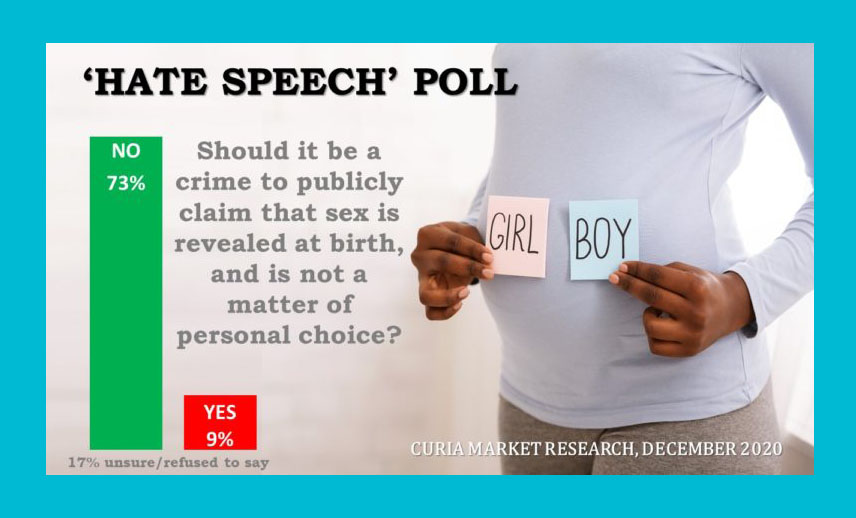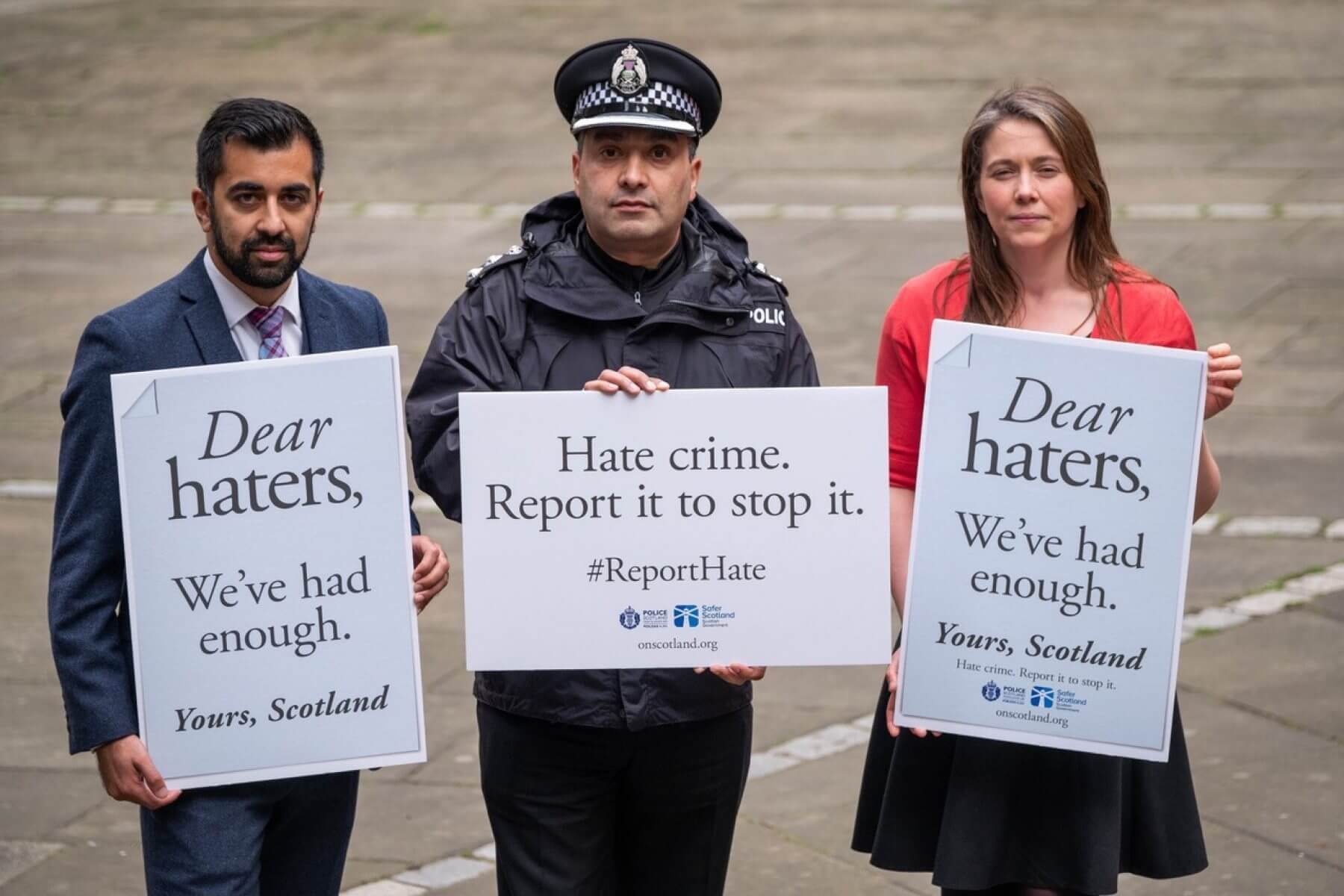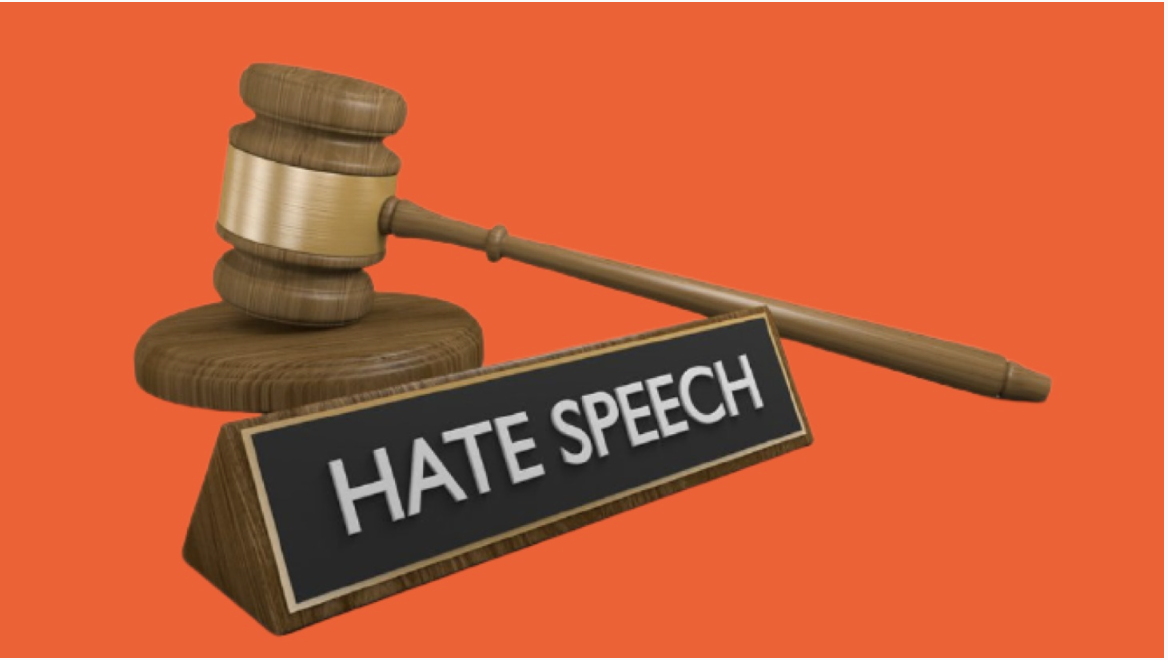“Free-speech is my right to say what you don’t want to hear”
– George Orwell
You can view and download the full Hate Speech fact sheet here.
MAKE A SUBMISSION TO THE MINISTRY OF JUSTICE by 6 August 2021
There are many things we are not free to speak about. Commonly accepted boundaries and laws set limits on free expression when that expression conflicts with the rights and protections of others.
Examples include laws on: libel, slander, obscenity, pornography, sedition, incitement, classified information, copyright violation, trade secrets, food-labelling, nondisclosure agreements, the right to privacy, dignity, public security, perjury and more.
These restrictions on your freedom of speech are widely accepted as part of a civil society. Likewise, threatening and abusive speech is also already banned because the consequences of harm can be directly linked to the speech in question.
Existing Laws Already Outlaw Hate Crimes
“Hate crimes” are already illegal! A “hate crime” is an offence motivated by a hostility to the victim because they are a member of a protected group.
The Human Rights Act makes it unlawful to incite hostility or discriminate against a group based on their colour, race, or ethnic or national origins, or to discriminate against people based on their sex, marital status, religious belief, ethical belief, disability, age, political opinion, employment status, family status or sexual orientation under the Act.
Conduct amounting to a hate crime (e.g. assault) has been well defined throughout existing laws to ensure such crimes are punished justly. Laws that already address harmful speech include:6
- The Human Rights Act 1993
- The Summary Offences Act 1981
- The Harmful Digital Communications Act 2015
- The Broadcasting Act 1989
- The Harassment Act 1997
- The Films, Videos, and Publications Classification Act 1993
- The Sentencing Act 2002.
For example, the Human Rights Act 1993 prohibits speech that is “likely to excite hostility or ill-will against”7 a person because of their identity in one of the above racial or ethnic groups. So, for example, if you try to incite a mob to go beat up Asian people, you can be charged with inciting violence under these laws – even if the mob never commits those acts.
There isn’t the need for further criminal laws to address such acts of hate and incitement to violence because such laws already exist!
So Why the Proposed Law Changes?
Law changes are proposed to address what is believed to be missing: specifically, the “incitement of hatred and discrimination” against ‘protected groups’ – which will be expanded to include all groups listed in the Human Rights Act (see above). The effect will be to significantly lower the bar for actions to have criminal intent, from the current “incitement of hostility or violence” to a much more worrisome and ill-defined “incitement of hatred”.
The current Ministry of Justice discussion document proposes a person “would break the law if they did so by being threatening, abusive or insulting”8. So you could potentially commit a criminal offence simply by insulting someone who belongs to one of these ‘protected groups’.
‘Hate’ Speech?
If you said “Only women give birth”, are you intentionally inciting hatred and discrimination, or simply stating what you believe to be a biological truth?
The proposed law also seeks to expand the above list of protected groups to include gender identity, to “clarify the protections for trans, gender diverse and intersex people”. This will include “gender expression and gender identity”9. This means any speech deemed offensive to transgender people could be considered a criminal act punishable with fines or imprisonment.
The Reverend Dr Bernard Randall was appointed Chaplain of Trent College in the UK in 2015 to provide pastoral care, share the Christian faith and lead services in the school’s chapel. In a recent sermon, he defended the pupils’ right to question the school’s introduction of new LGBT policies, and encouraged respect and debate on ‘identity ideologies.’ Following the sermon, Dr Randall was reported by the school to PREVENT, the antiterrorism unit which normally identifies those at risk of radicalisation. He was eventually made redundant by the school. His 12-day employment tribunal hearing has been delayed until September 2022.10
Australian tennis great Margaret Court holds the all-time record of 24 grand slam single titles. But as the Pastor of Victory Life Centre in Perth, her comments on the redefinition of marriage, homosexuality and the transgender community have sparked protests and calls to rename Court Arena (named after her) including by fellow tennis greats Martina Navratilova, Billie Jean King, and John McEnroe who labelled Court Australia’s “crazy aunt” (apparently this is not hate speech).11

The True Goal: Intimidation and Self-Censorship
The hidden agenda behind such laws is the development of a culture of fear and self-censorship for the purpose of political intimidation and control. Thoughts and ideas which are undesirable to special-interest groups will be able to be silenced simply by framing them as “hateful”. Such groups will claim to believe in free speech, just as long as it’s speech THEY approve of.

The result will be a population too afraid to express unpopular opinions, and no longer participating in the vital democratic process of debate and civil discourse necessary for a free and open society.
“The very last thing New Zealand needs is the chilling effect of hate speech police stifling our thoughts and monitoring our every utterance. Yet, if the law changes go ahead, the result will be that fewer Kiwis will openly speak their mind for fear the Police will come knocking on their door. It will indeed be an ominous day for New Zealand if the Police become the enforcement unit of ruling politicians and their activist allies against free citizens expressing contrary opinions…”
Muriel Newman, former MP – “Muzzling free speech”12
End Notes
6. For a review of applicable laws see the Royal Commission of Inquiry into the Christchurch terrorist attack. Pages 700 onwards:
https://christchurchattack.royalcommission.nz/assets/Report-Volumes-and-Parts/Ko-to-tatou-kainga-tenei-Volume-4.pdf
7. Human Rights Act 1993 – Part 6: Inciting Racial Disharmony: https://legislation.govt.nz/act/public/1993/0082/latest/DLM305478.html
8. Page 5 of the Ministry of Justice Proposal against incitement of hatred and discrimination, available at: justice.govt.nz/assets/Documents/Publications/Incitement-Discussion-Document.pdf
9. Ibid. Page 23
10. https://christianconcern.com/cccases/rev-dr-bernard-randall/
12. https://www.nzcpr.com/muzzling-free-speech/
Please share this article so that others can discover The BFD.

